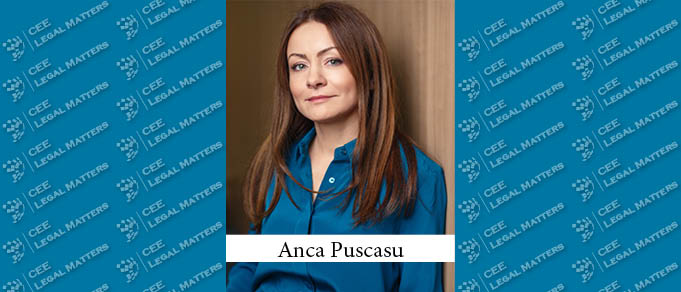Law No. 129/2019 on preventing and combating money laundering and terrorist financing and amending and supplementing certain legislative acts (“Law 129/2019”) has been amended by the Government Emergency Ordinance No. 53/2022 published in the Official Gazette, Part I, No. 394 of 21 April 2022 (“GEO 53/2002”).
Regulation
The amendment was driven by the need to identify all entities actually carrying out activities covered by Law 129/2019 (the “regulated entities”) in order to ensure their effective supervision and monitoring by the National Office for Preventing and Combating Money Laundering (the “Office”).
As such, pursuant to Article 302 of Law 129/2019 introduced by GEO 53/2002, the regulated entities referred to in Article 5(1)(g) to (k) of the Law are required to notify the Office on the commencement, suspension or termination of the activity covered by the Law within 15 days of such commencement, suspension or termination of activity.
The notification is to be submitted exclusively by electronic means. The form and content of the notification have been established by Order No. 145/2022 of the Office President, published in the Official Gazette, Part I, No. 523 of 27 May 2022, which entered into force on 1 June 2022.
Important note! According to Article II(1) of Order No. 145/2022 issued by the Office President, regulated entities already carrying out the relevant activities must submit the notification within no more than 30 days of the date of entry into force of the Order, i.e. by 4 July 2022.
Entities covered by the regulation
The regulated entities provided at Article 5(1)(g) to (k) of Law 129/2019 to which the new regulation is applicable are as follows:
- service providers to companies or trusts, other than those referred to in letters (e) and (f) (Article 5(1)(g) of the Law). According to Article 2(l), such providers are defined as natural persons and legal persons that provide, in a professional capacity, any of the following services for third parties:
- establish companies or other legal entities;
- act as a director or manager of a company or is a partner in a partnership or joint venture or in a similar capacity in other legal persons or arrange for another person to act in such a position or capacity;
- provide a registered office, place of business, business, postal or administrative address or any other similar service to third parties;
- act as trustee in a trust or trust-like arrangement or arrange for another person to act as trustee;
- providers of exchange services between virtual and fiat currencies (Article 5(1)(g1) of the Law);
- digital wallet providers (Article 5(1)(g2) of the Law);
- real estate agents and developers, including when acting as intermediaries in the letting of immovable property, but only in respect of transactions for which the value of the monthly rent is the equivalent in RON of EUR 10,000 or more (Article 5(1)(h) of the Law);
- other persons who, in their professional capacity, deal in goods, only to the extent that they carry out cash transactions whose minimum limit is the RON equivalent of EUR 10,000, irrespective of whether the transaction is carried out in a single operation or in a series of related operations (Article 5(1)(i) of the Law);
- persons trading in works of art or acting as intermediaries in the trade of works of art, including when this activity is carried out by art galleries and auction houses, if the value of the transaction or a series of related transactions represents the equivalent in RON of EUR 10,000 or more (Article 5(1)(j) of the Law);
- persons storing or trading works of art or acting as intermediaries in the art trade, where this activity is carried out in free zones, if the value of the transaction or a series of related transactions represents the equivalent in RON of EUR 10,000 or more (Article 5(1)(k) of the Law).
Companies must carefully analyse the activities they actually perform, including those that are not part of their core business or their usual range of services, to determine whether they fall within the category of regulated entities under Article 5(1)(g) to (k) of Law 129/2019.
Particular attention should be paid to the category of service providers to companies or trusts, which includes services such as renting or subletting premises for head office or business premises. In the view of the authorities, even when such services are isolated in the activity of a company or when the rental is made to a company in the same group, the lessor company can qualify as a regulated entity under Law 129/2019, having all the obligations arising from this qualification, including the obligation to notify the Office under Article 302 of Law 129/2019.
Penalties
Pursuant to Article 302 of Law 129/2019, failure by regulated entities to notify the Office within 15 days of commencement, suspension or cessation of business is a misdemeanour and is penalised as follows:
- For natural persons, by warning or fine ranging from RON 5,000 to RON 10,000;
- For legal entities, by warning or the same fine applicable for natural persons, the maximum limits of which are increased by 10% of the total income reported for the tax period which ended prior to the date of drawing up the misdemeanour minutes. Penalties may be imposed on members of the management body and other responsible natural persons.
Failure to notify the Office until 4 July 2022 on the performance of the relevant activity is a misdemeanour and is penalised by warning or fine ranging from RON 5,000 to RON 10,000 (Article III (1) of GEO 53/2022).
By Anca Puscasu, Partner, Tuca Zbarcea & Asociatii



